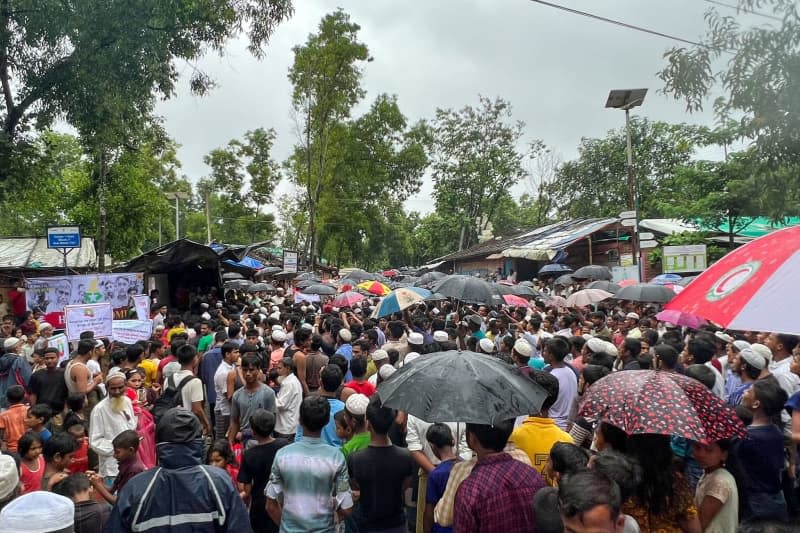Rohingya refugees in Bangladesh need secure shelters, IOM head says

Rohingya refugees living in squalid camps in Bangladesh are in dire need of safer and more secure shelters, a senior United Nations official said on Wednesday in Dhaka.
"People are living in shelters where they can’t properly lock their doors," said Amy Pope, head of the International Organization for Migration (IOM). "This is very fundamental issue."
Pope, who arrived in Dhaka on Sunday on a five-day trip to Bangladesh, visited the sprawling refugee camps in the south-eastern district of Cox’s Bazar to get first-hand accounts of the plight of the Rohingya Muslims, who fled brutal persecution in Buddhist-majority Myanmar.
"We heard from women and girls who are fearful at night that they would be sexually assaulted. We heard from families who are concerned about the safety of their children," Pope said.
She said she listened to many women and girls, and she found security was one of the significant challenges that they are facing.
The refugees have few resources to protect them from the gangs involved in abductions and other criminal activities, added Pope, who also had meetings with senior officials including Prime Minister Sheikh Hasina and Foreign Minister Hasan Mahmud.
Bangladesh has been hosting over 1 million Rohingya Muslims after they were driven out of Myanmar. Some 750,000 of them crossed the border after Myanmar launched a military crackdown on the ethnic minority group in August 2017.
Women constitute 52% of the Rohingya population in Bangladeshi camps, according to a UN estimate.
Police says crimes like murder, kidnapping, rape, robbery, human trafficking and narcotics trade have soared in recent years as a result of emergence of armed gangs in the camps.

